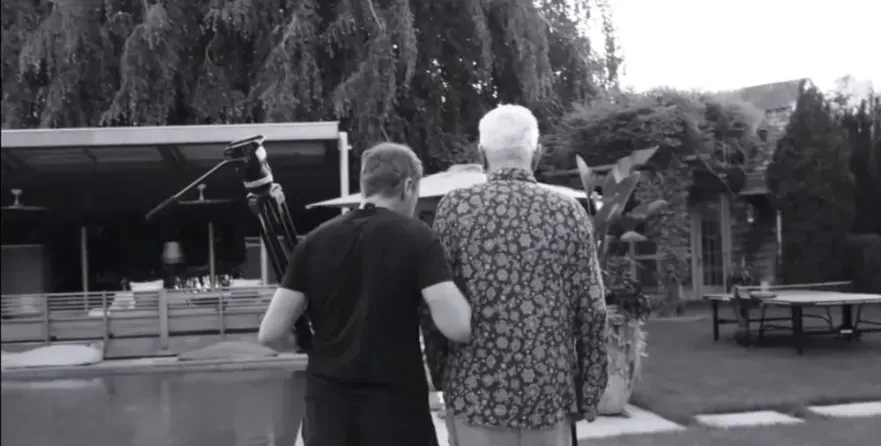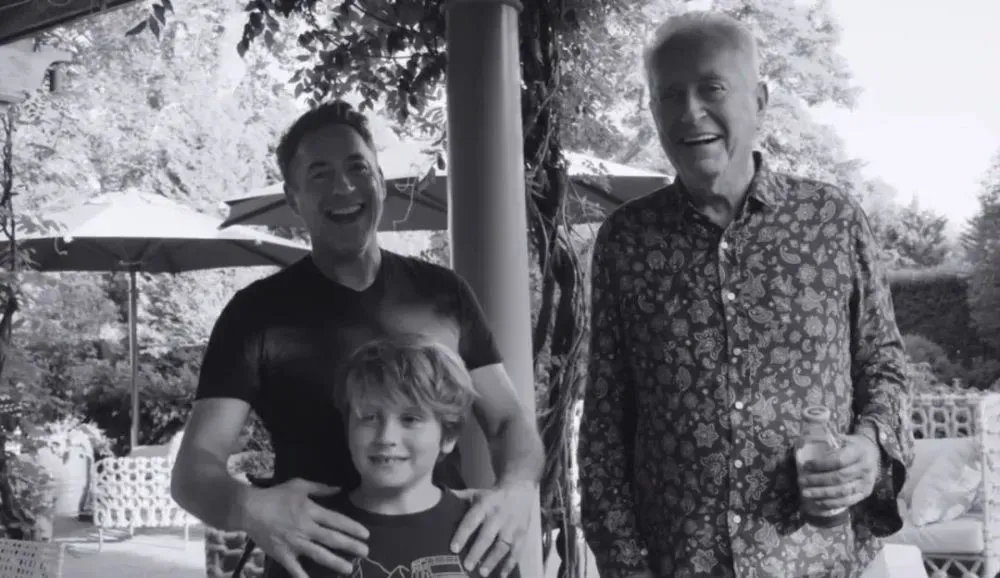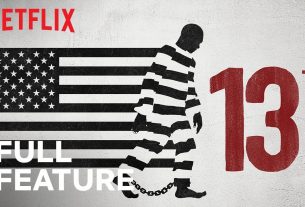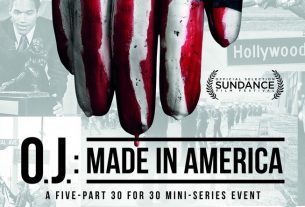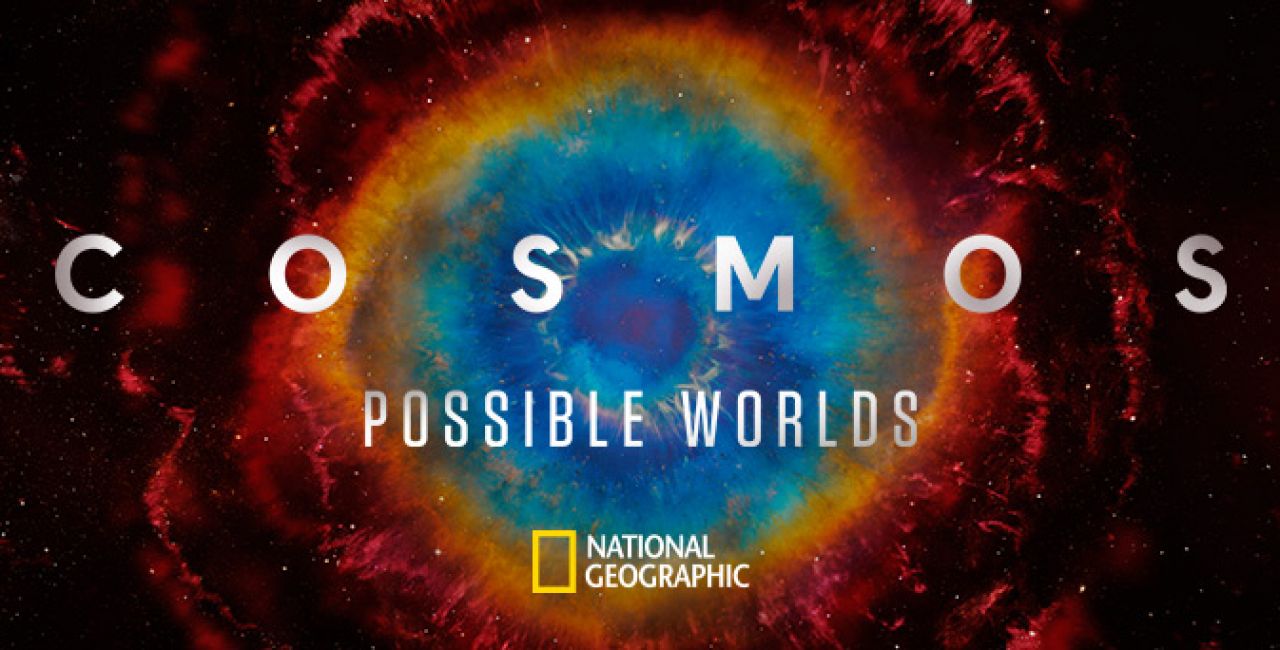The name of Robert Downey Sr. as an icon of underground cinema in the 1960s has been forgotten by today’s generation.
But in the eyes of his famous son, “Iron Man” actor Robert Downey Jr, his father has always been a great filmmaker.
Perhaps it’s hard to be called a good father – as in Tony Stark’s mind, the father who is forever coming and going, his face blurred, is the most amazing scientist and entrepreneur in the world.
‘Sr.’ accompanies his father through the last days of his life from the perspective of Robert Downey Jr. In reality, the movie has once again bridged the eternal regret of ‘Iron Man’ in its own way.
In this documentary about father and son, the two men talk the most, still about the movie ……
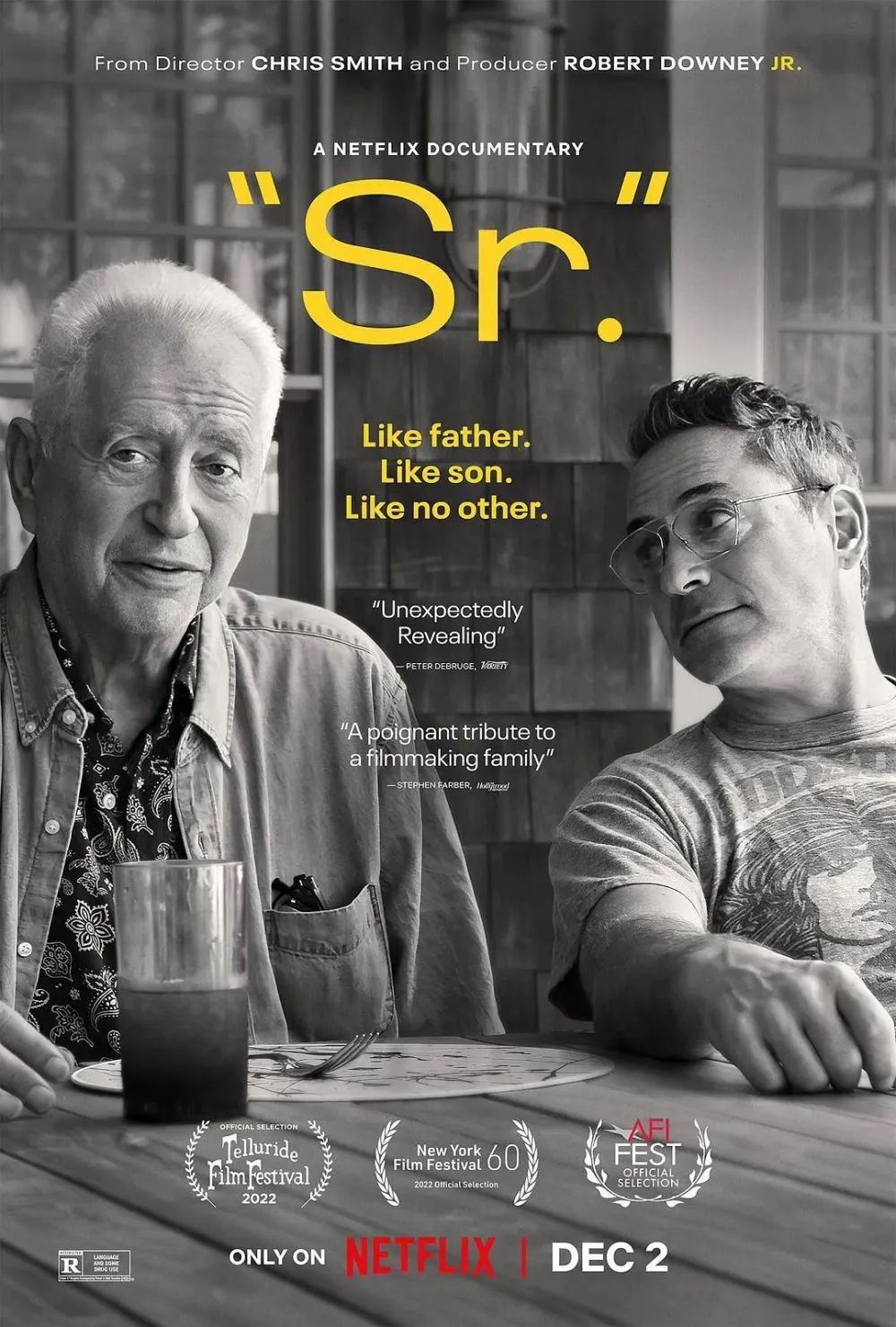
Since 2021, “Nepo Baby Takes Over Hollywood” has been a hot topic of discussion in the entertainment industry across the United States, fueled by the gossip media.
The named celebrities and Nepo Baby were not shy to voice their dislike.
(hereinafter referred to as Downey) for his father Robert Downey Sr. (hereinafter referred to as Downey Sr.), the documentary ‘Sr.’ was released, contributing another wave of topics to this lively quarrel.
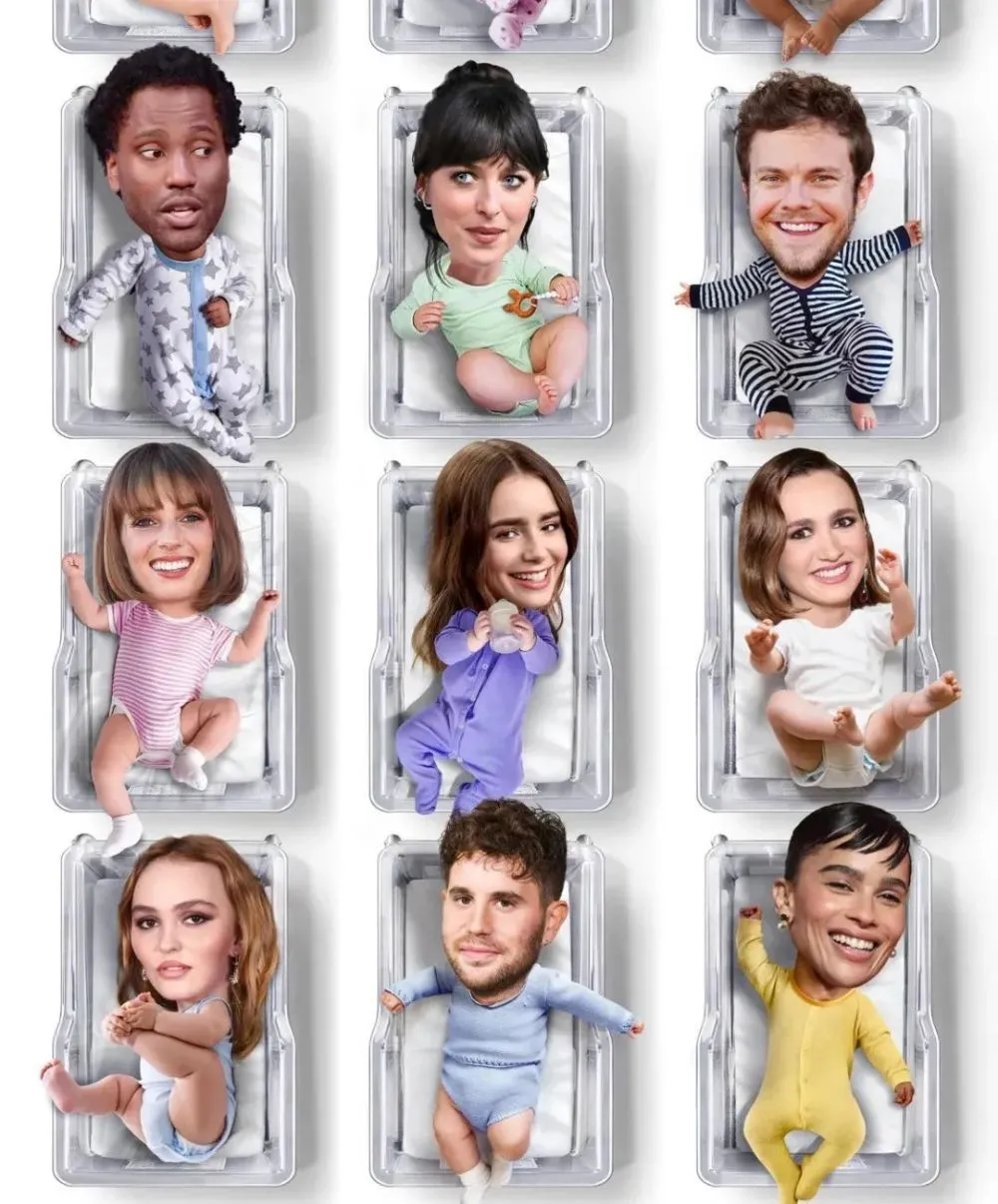
Although he has long since shed the “Nepo Baby” label, Downey admits in the documentary, “For me, he’s like a shadow over me. For a long time, I was just Downey Sr.’s son.
This feeling represents almost every Nepo Baby’s heart. How to continue their life and acting path with this pressure is one of the questions that this documentary tries to face.
The documentary ‘Sr.’ by five-time Emmy Award-nominated director Kris Smith screens at the New York Film Festival on October 10, 2022 and hits Netflix on December 10.
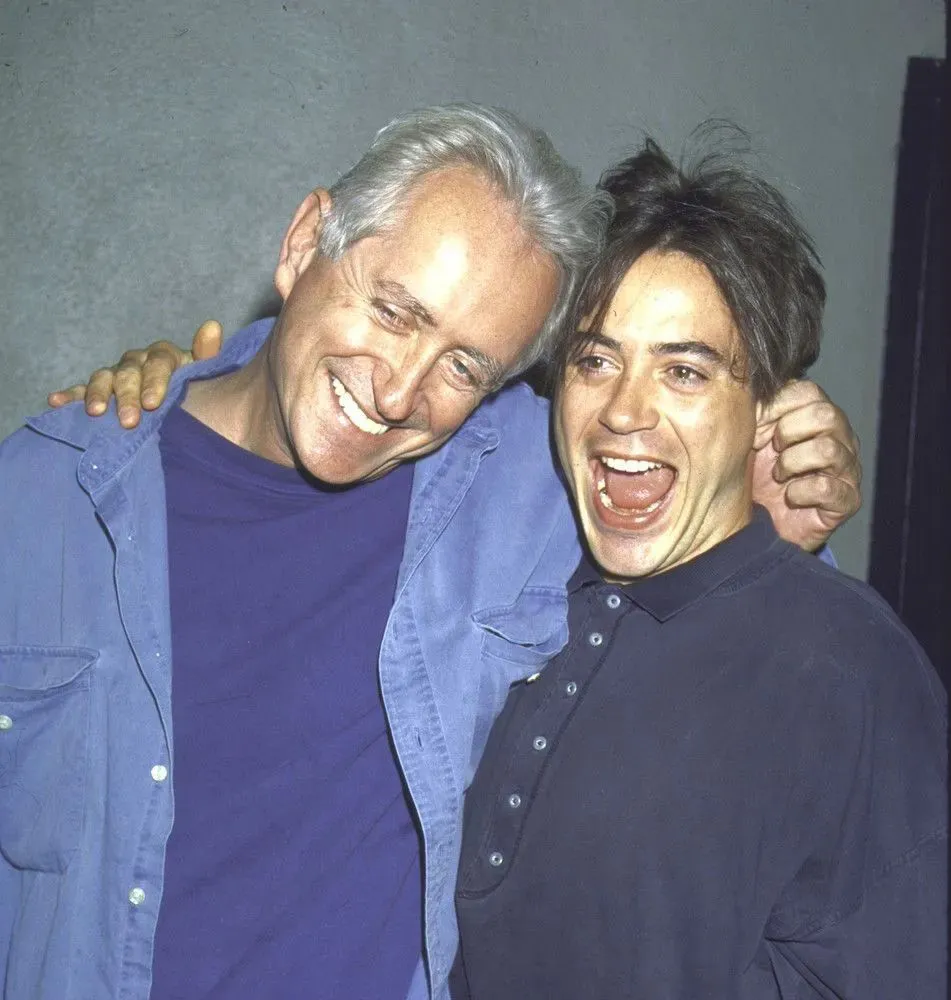
Western practice, in order to distinguish between fathers and sons with the same name, would place Sr. after the father’s name and Jr. after the son’s name. Thus, Downey Sr. is Robert Downey Sr. and Downey is Robert Downey Jr.
Downey used ‘Sr.’ as the title of the film, both to express respect for his father, but also to tell the world that the two generations of Downey have their own life path, can not be copied.
Time flies, and people’s memories of the previous era fade away. Downey Sr. once used his own fame to cover his son’s star, but in his later years, he can only be remembered as the father of “Iron Man” – the cycle of fate is sometimes so wonderful.
As one of the most well-known independent filmmakers in Hollywood in the 1960s, Downey Sr.’s creative peak was left in the last century, but the films he directed are revered by Hollywood filmmakers and fans for their highly personal absurdity, satire and idiosyncratic style, with masterpieces such as ‘Greaser’s Palace’ Putney Swope’, each of which is a masterpiece of American underground cinema.
In 2016, when Downey became the world’s highest paid actor, his father, who was in his eighties, was diagnosed with Parkinson’s disease. This made “Iron Man”, who lost his father’s love in the comic book world, realize that he had to cherish the time he spent with his father.
At that time, Hollywood director Kris Smith approached Downey with the intention of making a documentary about his life and career, but Downey wanted to replace the main character of the documentary with his own father.
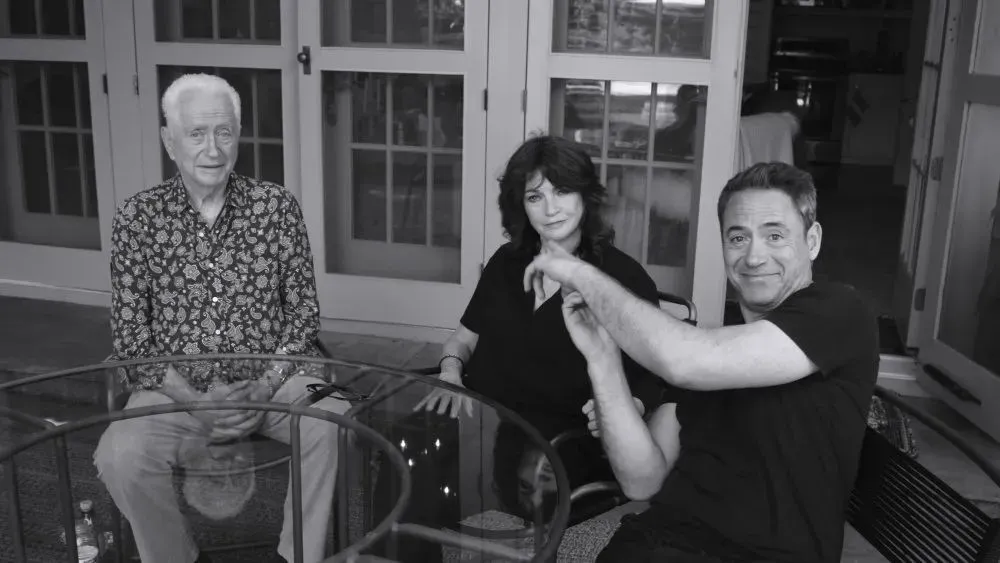
In the documentary, Downey watches footage of himself spending time with his father as an off-screen voice plays his voice: “No one knows when he’ll go, how much time we have left together.
It might be biased to assume that ‘Sr.’ is a family documentary centered on sculpting father-son bonding time – the film is more like a film scion’s attempt to enter the mind of a talented filmmaker.
Figuring out how he [my father] got his inspiration is what I’m doing all this work for,” Downey says.
As a teenager, Downey Sr. – whose real name was Robert Elias – had the “debauchery” of the era.
He used his stepfather’s name and a false birth certificate in order to enlist in the Army before he turned 18. While serving in the army, he was sent to the army prison for insulting his superiors.
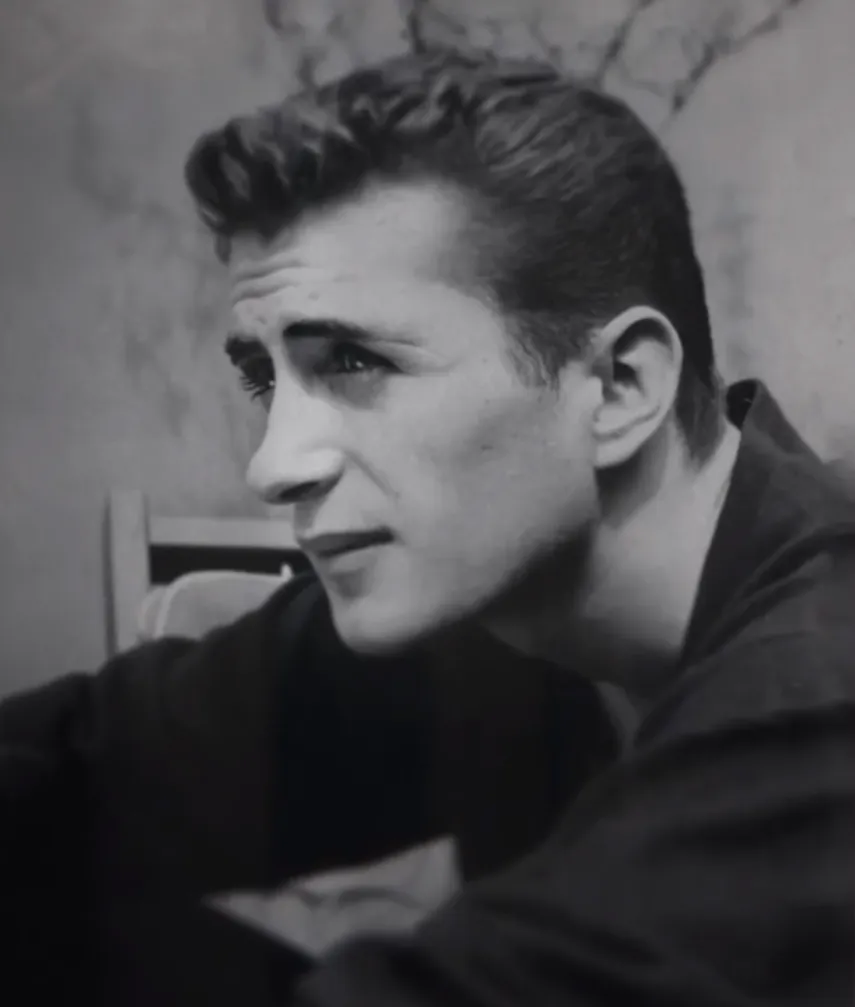
In prison, the jailer felt that the young man had nothing to do all day, so he gave him some paper and a pen and told him to try to write something – and thus began the creative path of a film genius.
This early experience was not mentioned by Downey’s father until the filming of the documentary: “It was the first time in his life that someone encouraged and supported him in his creative endeavors, and it was a thoughtless gesture from a stranger.
The American underground cinema of the 1960s was exceptionally prosperous and radical, and the anti-mainstream pioneering consciousness was almost rooted in the soul of Downey Sr.
In 1966, Downey Sr.’s film debut ‘Chafed Elbows’ was released, telling the incestuous story of a man who falls in love with and marries his own mother.
Because the subject matter was too pioneering and daring, the director did not expect much attention to be paid to the film.
But a columnist for ‘The New York Times’ published a review of the film, and then curious fans lined up outside the cinema to see how the director told this amazing story.

Downey Sr. made a name for itself in the underground film industry with its first success.
As Downey Sr. recalls, when he was young, it was cheap to make a film, “I could make a film with a random job” – which gave him the conditions to put his various wild ideas on film and create them in the form of a movie. His uniqueness and difference are so striking that it is impossible to ignore them.
Norman Lear, the father of American sitcoms, director, producer and writer, was a close friend of Downey Sr. for most of his life. He said of Downey Sr.: “There was something absolutely, wonderfully, wonderfully crazy about the time I spent with him.
In 1969, Downey Sr. completed his early masterpiece ‘Putney Swope’. The film is full of bitter satire on the various social phenomena of the American racial affirmative action movement: in the process of electing a new chairman, in order to ensure that his opponent could not be elected, by mistake, all members voted for Putney Swope, the only black person on the board, and the first thing Swope did after taking office was to replace all the board members with The first thing Swope did after taking office was to replace all the board members with blacks.
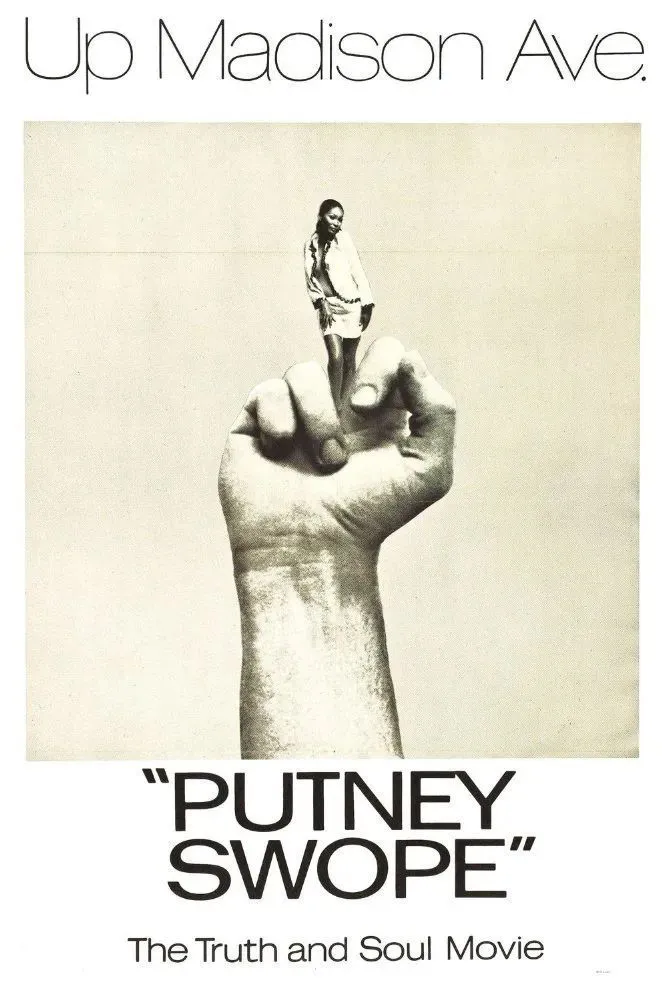
Reviews of movies vary wildly: “funny” “childish” “brilliant” “nasty” “incoherent” “hard to understand” “relevant to the pulse of society” ……
“There seems to be something that ties what’s happening in society to the movie,” Downey Sr. If everyone had a self-deprecating sense of humor, I think we could laugh about a lot of serious things and we could face serious subjects in a different way,” Downey Sr. said.
My father’s generation lived with abandon,” Downey says. They may have had all sorts of flaws, but if you look back now, what they accomplished is so striking. That doesn’t mean they had any fun when they were in it, but our culture is better for it.
“What advice would you give yourself at that time?” “Don’t touch drugs.” –Robert Downey Sr.
In 1970, Downey Sr. made the film ‘Pound’, which tells the story of 18 stray dogs in an animal shelter waiting for their last hour to be exterminated – all played by human actors, and one of them, a young actor, was only 5 years old Downey.
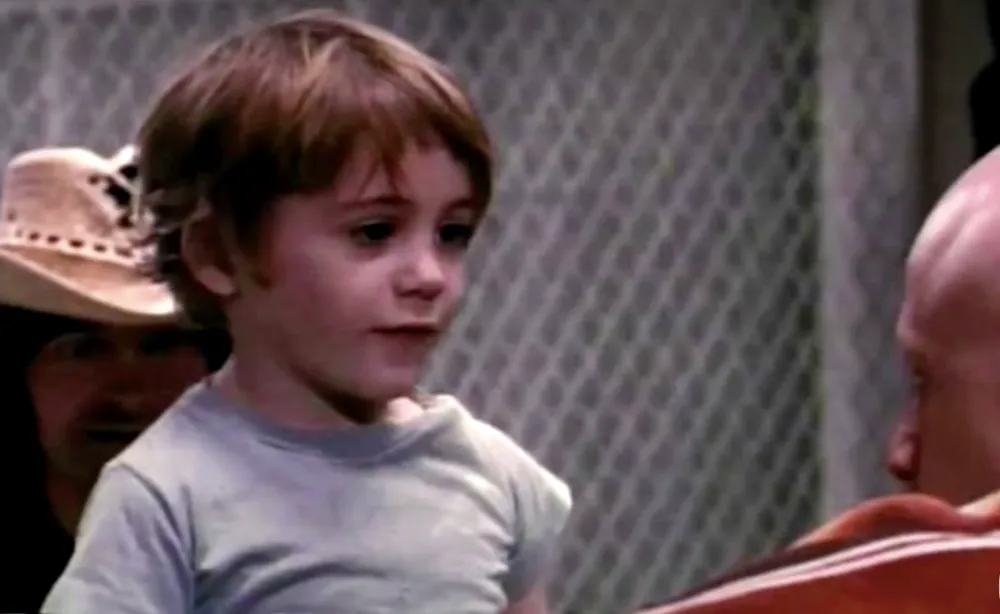
In the documentary, Downey teases his father, “I think ‘Pound’ is your most underrated work – it’s my debut.
The director interviews Downey Sr. on the sidelines: “Did you notice Downey (has acting talent) when he first appeared on camera? Downey Sr. smiled proudly: “Everyone noticed, everyone was asking me: ‘Where did you get him?
Downey’s talent for acting seemed to come as a natural. When he was a baby, his parents were busy working on a new movie, and their home was like a creative camp, with people always in and out, watching dailies and discussing scripts.
People put Downey and his crib next to the VCR, and Downey recalls, “I loved the sound of the board going to sleep with me, like I was meant to be in this business.
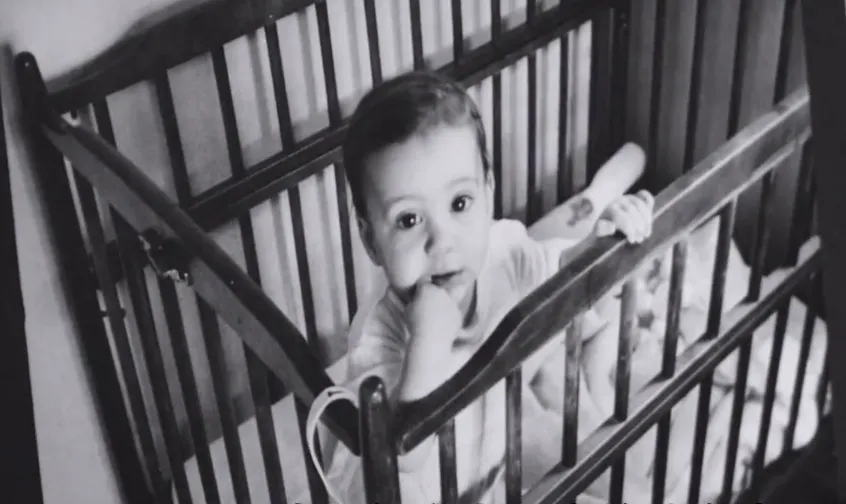
As he grew older, Downey began to realize that his home was not like others: “I grew up in a family where making underground films was the norm and I had little contact with mainstream things.
Downey Sr. gave Downey roles in movies that were far beyond his years and groomed him for them. Subconsciously, I knew he didn’t have to go to school at all – the boy was going to be an actor,” he says.
Downey Sr. will also take his young son to see movies that interest him, never considering whether they are “inappropriate for children”.
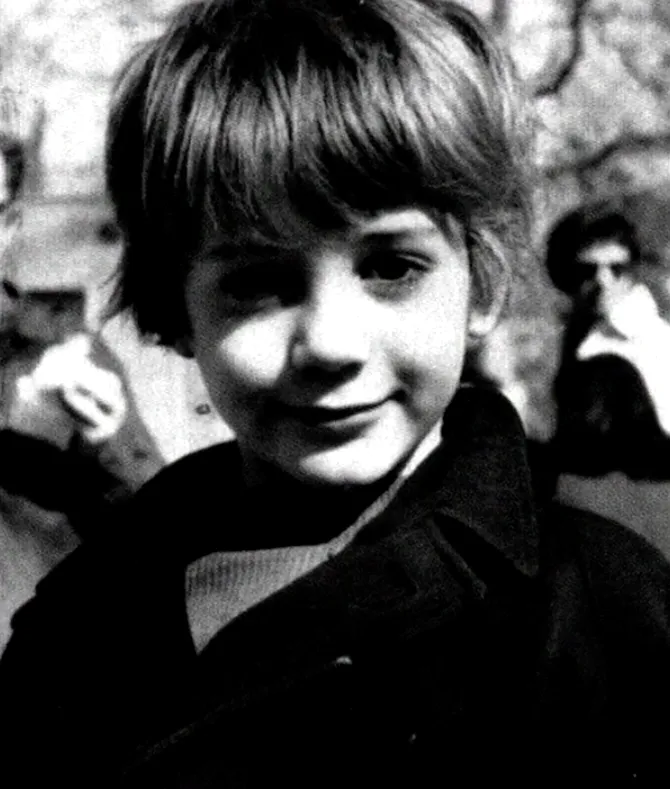
A father and son were stopped by the ticket inspector when they walked into a movie theater because they were about to watch a restricted adult movie.
Downey Sr. called the film’s distributor undeterred and took his son into the theater with him – it’s hard to imagine what kind of memories this heavy-handed film has left for 8-year-old Downey Jr.
The influence of his father was a double-edged sword for Downey. On the one hand, the light of teenage genius was stimulated early by these unconventional and unconventional film productions, which provided him with rich and unconventional acting experience.
On the other hand, a crazy and unconventional lifestyle can certainly be very dangerous for a minor.
According to the general story, the child who would later nearly ruin his entire life because of drug use, first tried drugs when he received a marijuana from his father on his 8th birthday.
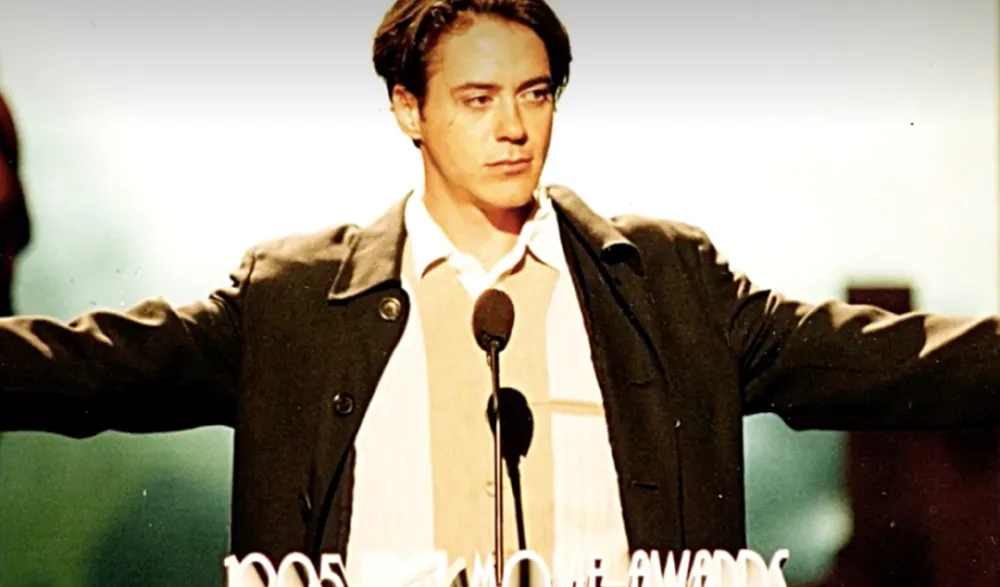
Robert Downey Jr.’s life experience after he became famous has been reported by the media countless times: amazed by Hollywood with his talent → drug addiction destroyed his career → was banned and silent for ten years → after rehabilitation, he made a difficult comeback → starred in ‘Iron Man’ ‘Sherlock Holmes’ and soared to the top → became the most expensive actor in the world → “Iron Man’ ended and said goodbye to Marvel ……
People like to get to know this man from all dimensions, endlessly focusing on his love story with his partner’s wife, the feud with Marvel, the various CPs with Jon Favreau, Captain America, Tom Holland ……
It can be said that before ‘Sr.’ appeared, the only curiosity of all about ‘Iron Man’ that was not fully satisfied was the real relationship between him and the father who was a director, a leader in the industry, and a bad example of drug addiction.
“When issues purely for the sake of gimmicks become mainstream, we can’t go any deeper in a meaningful way.” Even though he could get out of his scandal-ridden days, he couldn’t shake the gossip about that experience, keeping Downey very defensive and aggressive in front of the media.
A clip that appears in the trailer for ‘Sr.’-where Downey tells his father that he wishes he could confront their respective substance abuse problems-appears to hint that the documentary will feature Ree’s The documentary will respond positively to the secretive past.
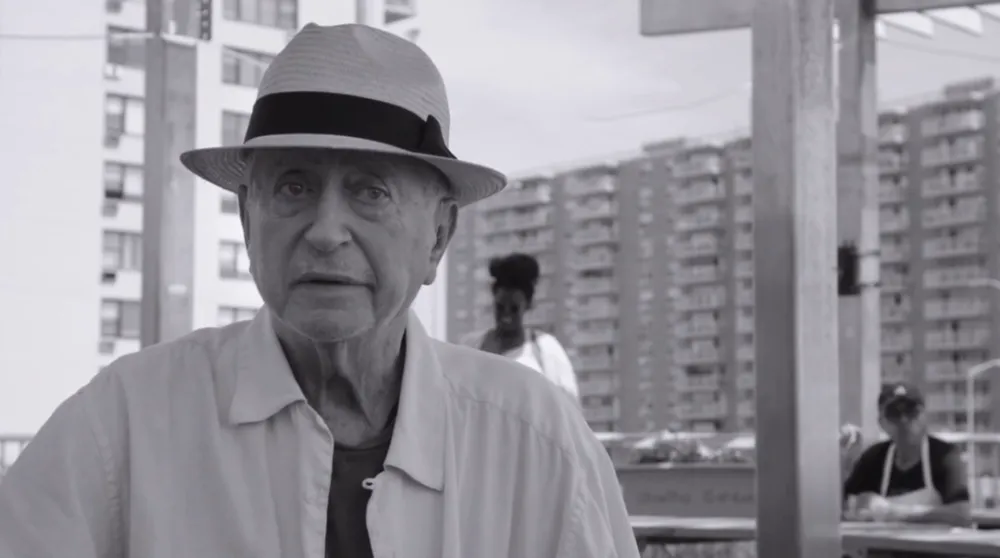
Even in his later years, however, the issue still disturbed Downey Sr. who referred to it as “15 years of total insanity” and ended the conversation after expressing deep remorse and Downey’s reluctance to pursue it – giving the impression that the father and son would never be able to completely The feeling is that this father and son will never be able to completely open their hearts and face the matter of drug addiction.
It wasn’t until a year after his father’s death, during the ‘Sr.’ campaign, that Downey was finally able to face the media and speak calmly and honestly about his feelings: “No one wants to admit to being a failure in trying to deal with alcoholism or addiction. You feel remorse for all the crazy things you’ve done, and it becomes a lifetime of guilt. But by today, I think most cultures understand that addiction is recognized as a brain disease – that’s what it is: it’s a disease. Being able to overcome a disease gives you a certain dignity for the rest of your life. It’s such a joyous thing, and I think that’s what’s important.”
‘Sr.’ was filmed over a three-year period, documenting Downey Sr. from his illness to his death, a process that did not go smoothly. At first, Downey Sr. did not even agree to make his own biographical documentary.
Downey offered to use the proceeds of the documentary to fund an art film that he “wanted to make” in order to “get” his father to agree.
But as his health deteriorated, this plan was no longer possible, but Downey Sr. was still unwilling to give up creating.
So father and son decided to edit a version of each with documentary footage. Thus ‘Sr.’ has a distinctive ‘play within a play’ structure.
To support his father’s creation, Downey sent a director to New York to shoot the scenes he wanted. An editing workstation was also built in Downey Sr.’s home, so that he could easily process the material he shot at any time and edit his own version.
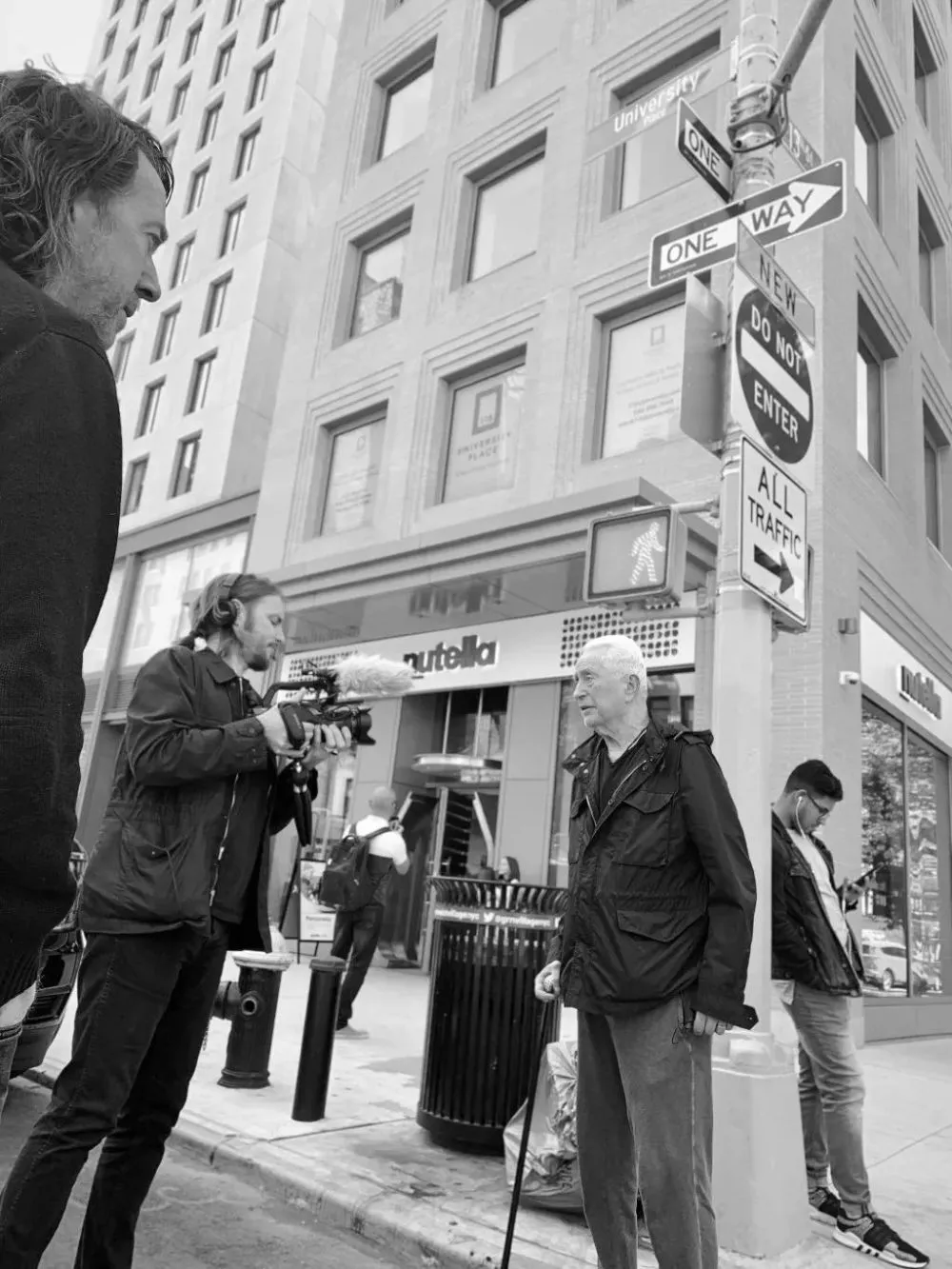
But Downey Sr.’s idiosyncratic and whimsical nature still caused Downey, as producer and son, a lot of headaches.
The documentary includes more than one of Downey’s tirades against his father — he’s taken to saying no on set and having the final say on the direction of travel.
If you don’t give the director a deadline to finish the work and set the tone at the beginning, it will be a disaster later.
I realized from the beginning that he wasn’t going to make it easy for us to execute our creative plan. In Downey’s case, it all started because Downey Sr. knew time was running out.
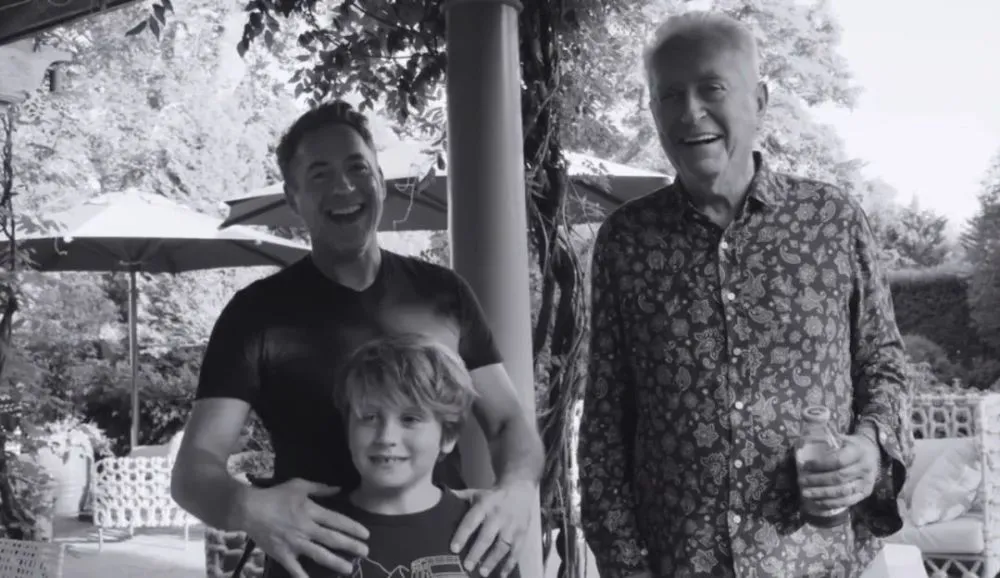
While still in good health, Downey Sr. made three trips to his son’s Windmill Castle home in the Hamptons to finish filming the documentary while sharing his last moments with his children and grandchildren.
According to Downey’s recollection, they shot very little footage of the third meeting because the father was already in bad shape.
Shortly thereafter, Downey Sr. was paralyzed and nearly incapacitated at his home in New York City.
And the raging epidemic also once blocked Downey’s plans to travel to New York, they can only rely on video calls to communicate the progress of the film, to have a long-standing conversation that can not be opened but also can no longer be delayed: about the past, about regret, about death …… This also makes the documentary has a deeper and more poignant meaning.
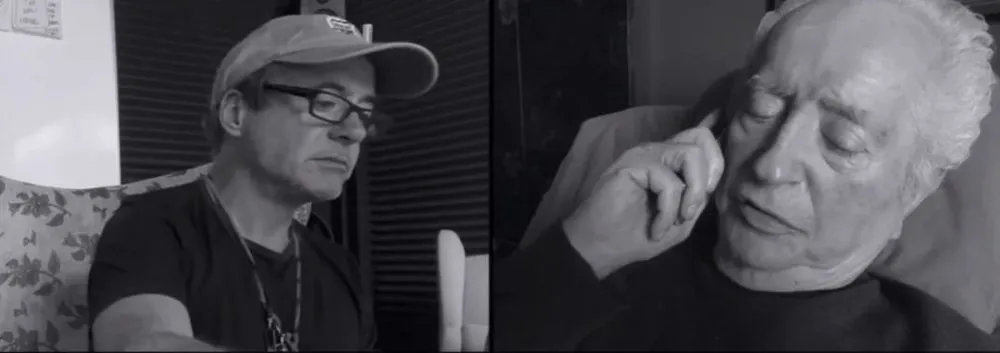
“It’s not over until the last minute, but no one wants to admit that the end has come. During the shoot, when we needed some courage and humor to face the end, I would even joke to him, ‘Dad, if you haven’t hung up by the end of the shoot, the third act of this film is going to be a disaster.’ And he’d say, ‘Hey, don’t rush me. I’m doing my job.'”
At the end of the film, Downey decides to take his son to New York to visit his father. Before leaving, Downey foresaw that this would probably be the last time between father and son.
In that moment, he remembered that many years ago, he had driven with his father from Santa Fe to Los Angeles (about 1,400 miles), the only road trip between father and son. Then their respective lives were bumpy and twisted, and in a matter of moments they came to the end of his father’s life.
This time, it was Downey who took his young son on a driving trip. The same aura envelops, the same father-son bloodline, the same generational change …… One day, everyone will be the one to be decided.
Downey once quoted the verse “Rage, rage against the dying of the light.” from ‘Do not go gentle into that good night’ to describe his father’s feelings while filming his own documentary.
What it’s like to have the camera lens on you while you’re staring into the abyss,” he said, “Dad understood that better than anyone else involved in the project. So he wanted to take the focus off of himself and turn it on that abyss.”
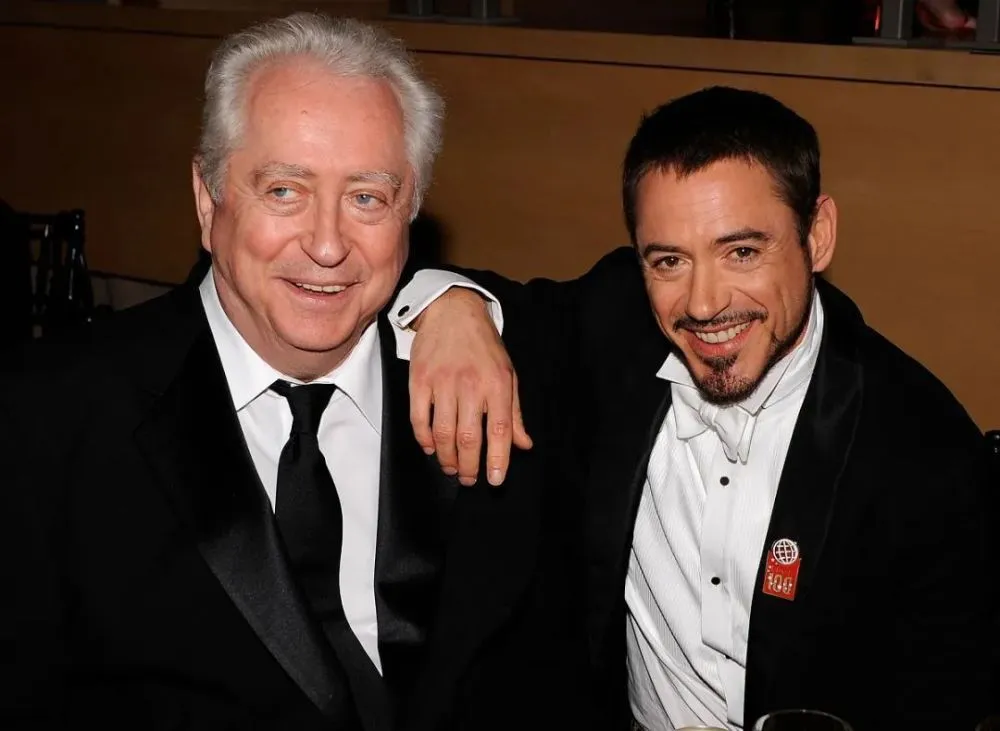
In the early hours of July 8, 2021, Downey announced Downey Sr.’s death in a post on social media platforms: “Last night, after years of suffering from Parkinson’s disease, my father passed away peacefully in his sleep …… He was a true maverick filmmaker.”
Downey’s good friend, ‘Iron Man’ director Jon Favreau, once commented on the times we live in: “There used to be a whole lake for us to make waves, but now people’s attention spans are as fleeting as a fast-moving stream.
Or perhaps this brilliant assertion aptly explains the abysmal difference in the status of Robert Downey Sr. and his son in today’s film industry – although the documentary shows us that the father and son have the same electric wit and endless talent.

One topic that has persisted between father and son for many years is that Downey Sr. has been trying to persuade his son to become a director himself.
“Dad always said that anyone can act, but few are qualified to be directors – that’s probably one of the reasons he wasn’t excited about the commercial blockbusters I was in.
In a sense, ‘Sr.’ is Downey’s effort to get closer to his father, and “this attempt [to direct] may be the last lesson I have to teach in the classroom of my life.
“What kind of a father is Downey Sr.?”
“It’s complicated, his whole heart is devoted to the pursuit of beauty – cinema is everything to him.”
